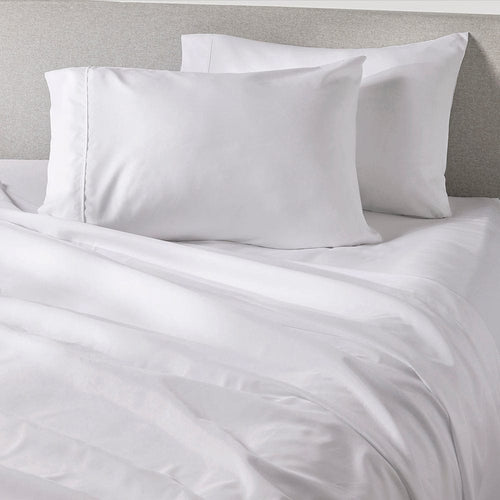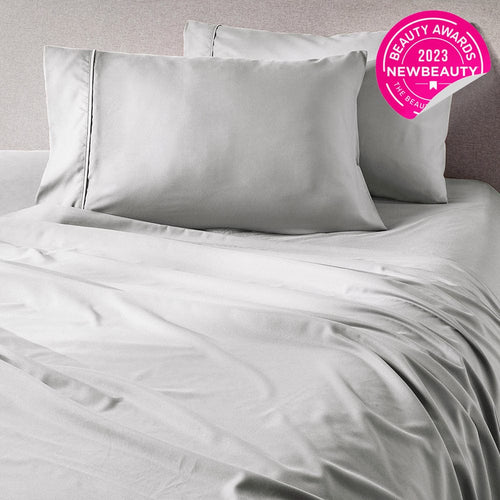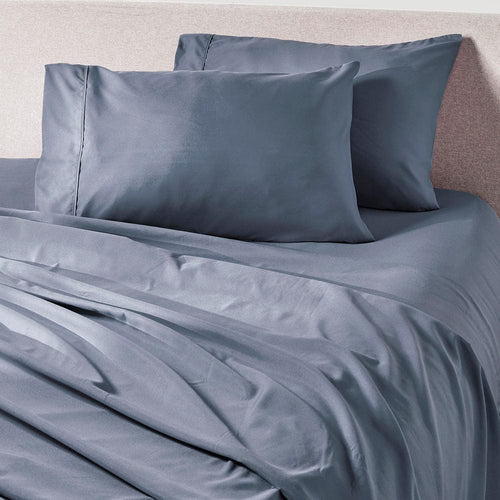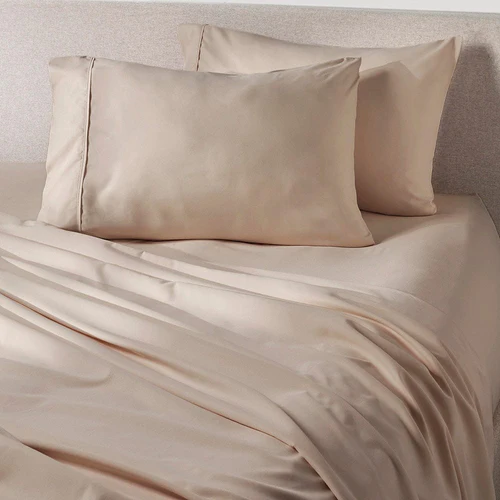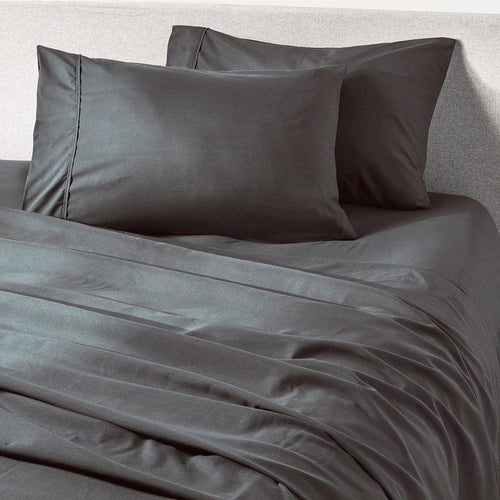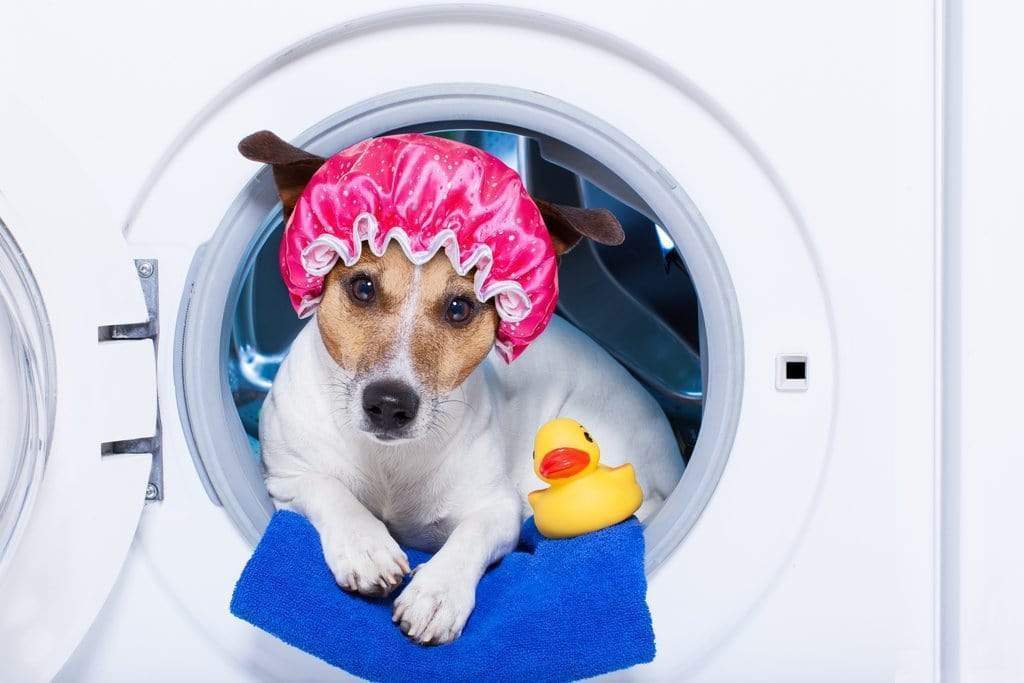
In The Know - How Often Should You Wash Your Sheets?
If there’s one chore that most of us dread, it has to be washing our sheets. It always feels like such a hassle. So, naturally, we tend to procrastinate when the time comes to throw our sheets in the wash. One week turns into two, then suddenly it’s been six weeks since the last time we stripped the bed.
However, washing our sheets should really be a top cleaning priority. All kinds of nasty critters hang out in our bedding - from dead skin cells to dust mite excrement. Since we spend a full third of our lives in bed, we accumulate all sorts of unsanitary germs in our sheets. But we still continue to snuggle up with those germs and sleep with them every single night. Washing our sheets kill these bacteria, so it is crucial to find a consistent washing routine and stick with it.
But what is the right frequency for washing our sheets? And what is the reasoning behind needing to wash our sheets at this rate? Read on to find out what is lurking beneath your comforter and what you can do about it.
BODILY SHEDDING
Did you know that you can expel up to a pint of sweat every single night? And the majority of this, of course, seeps right into your sheets. Lovely. Dead skin cells are also flaking off constantly during the night, making their own little cozy residence on your sheets.
Sheet samples typically reveal bacteria from urine, feces, sweat, and genital fluids present. This means that when you snuggle up in your sheets every night, you’re really cuddling up with your own bodily waste. If you share your bed with anyone else or even your pets, the bacteria soup just turned into a full on petri dish.
BACTERIA

We come into contact with all kinds of bacteria during the day. When we climb into bed at night, we are dragging all that lovely residue with us. Germs from bathrooms, schools, taking out the trash – you get the idea. Even if you’ve showered right before the day’s end, you’ll still find bacteria sneaking into your bed. Some of these bacteria are harmless, but much of them can potentially make you ill.
Adding white vinegar to the rinse cycle can disinfect clothes and also help get rid of any soap residue. Costing you only pennies, it’s well worth a try. Add approximately ¼ to ½ cup to the rinse cycle. You can add vinegar to water at any temperature, and the small amount will not leave any lingering odors in the clothes. You can boost the effectiveness of the vinegar by adding baking soda with your detergent at the beginning of the wash cycle.
Another natural product that’s a great disinfectant is grapefruit seed extract – also known as GSE. GSE can usually be found in health food stores or vitamin shops. A few drops (½ to 1 teaspoon) in the rinse cycle will disinfect laundry in any water temperature.
Tea Tree Oil is also a good disinfectant. Simply add 2 teaspoons to the rinse water. Make sure it’s good quality Tea Tree Oil as well.
Other essential oils like lavender and peppermint have disinfectant properties and can be used in laundry rinse cycles as well. Also, a couple drops in the rinse cycle can make your laundry smell fresher.
MICRO-CREATURES

It’s an unfortunate part of life that we inevitably share our bed with dust mites. They happily feast on our dead skin cells - multiplying quickly. Their excrement is left behind in our bedding, which carries more than just a gross factor. Mites can trigger allergies, which makes sleeping in a dust mite filled bed miserable.
Your mattress gets heavier over time thanks to these icky nuisances. Thankfully, you can wash them out with regular sheet washing!
ALLERGENS
Dust is also a significant source of allergies for most of the population - varying from mild to severe. All of that pet dander, dead skin cells and yucky dust mite excrement settles into your bedding, exacerbating even mild cases of allergies.
Always keep your bedding as clean as possible to keep allergens at a minimum. If you suffer from allergies, you may want to consider investing in anti-microbial sheets like PeachSkinSheets - dust and pollen are not as likely to adhere to them. You also might want to consider washing your other bedding like duvets, comforters, and even decorative pillowcases more often. Also, don’t forget that your mattress will need to be replaced eventually one day, as they don’t last quite for an eternity.
Our beds may seem like safe and cozy places, but in reality, they can be a breeding ground for all kinds of bacteria, microscopic pests, and allergens. Between the bacteria you gather throughout the day and the grime you shed during the night, things can get gross quickly. Always make it a priority to wash your sheets at least once a week. You might want to also consider setting a schedule for when you wash your other bedding. Consistency is key.
When it comes to choosing sheets that shield you from these critters right out of the package, get sheets that are anti-microbial. PeachSkinSheets are crafted with fibers that help prevent dust and dust mites from settling in. You owe it to yourself to take care of your health - especially during sleep!

